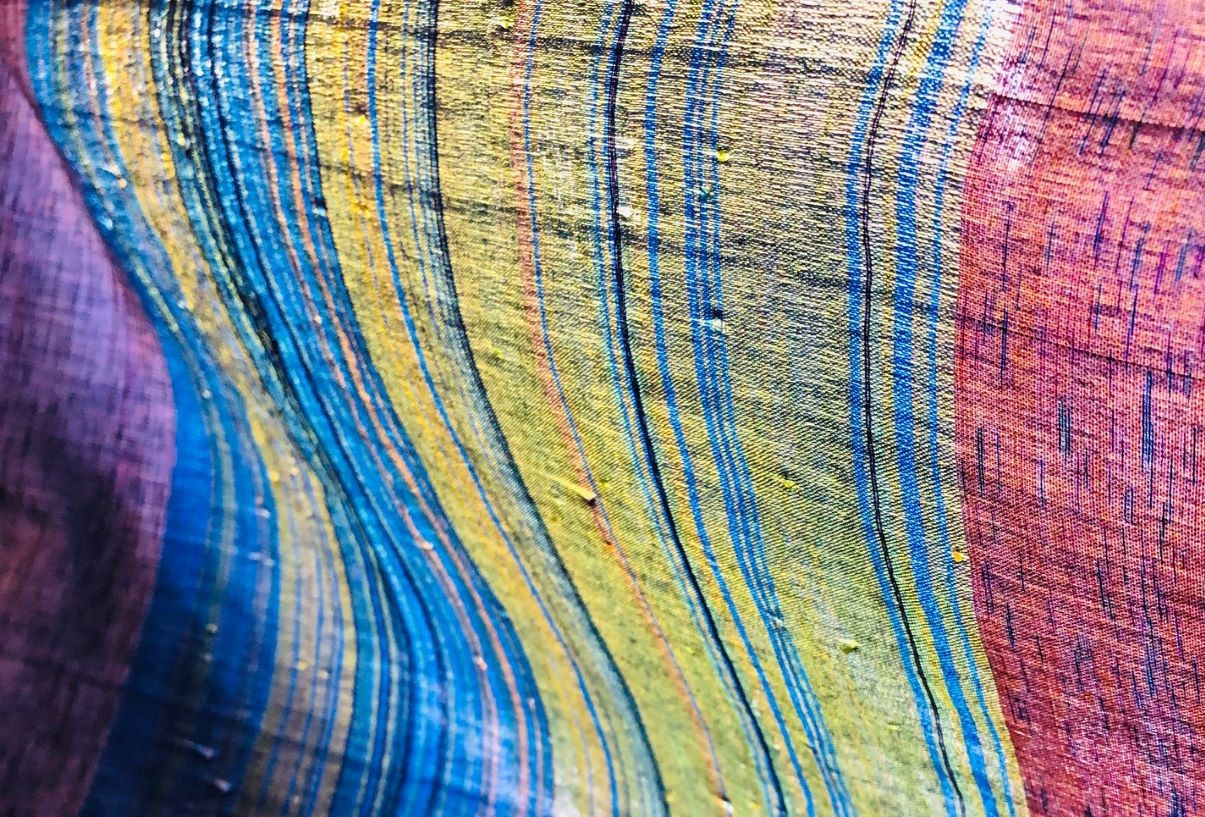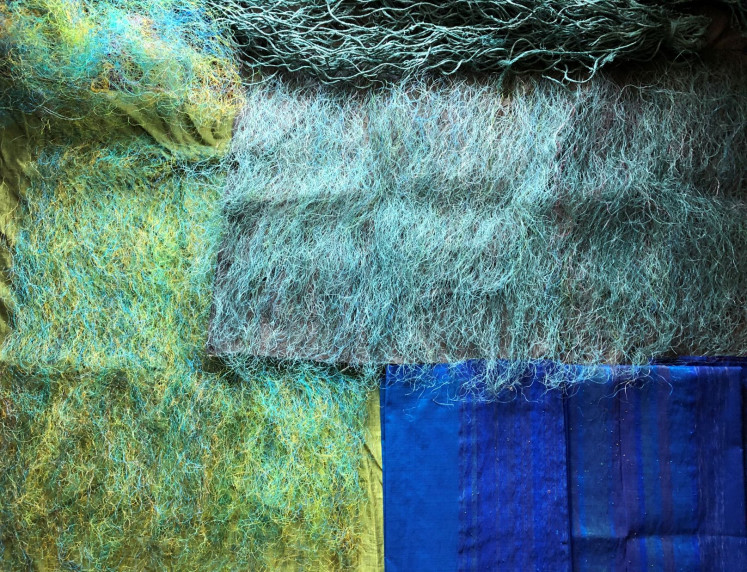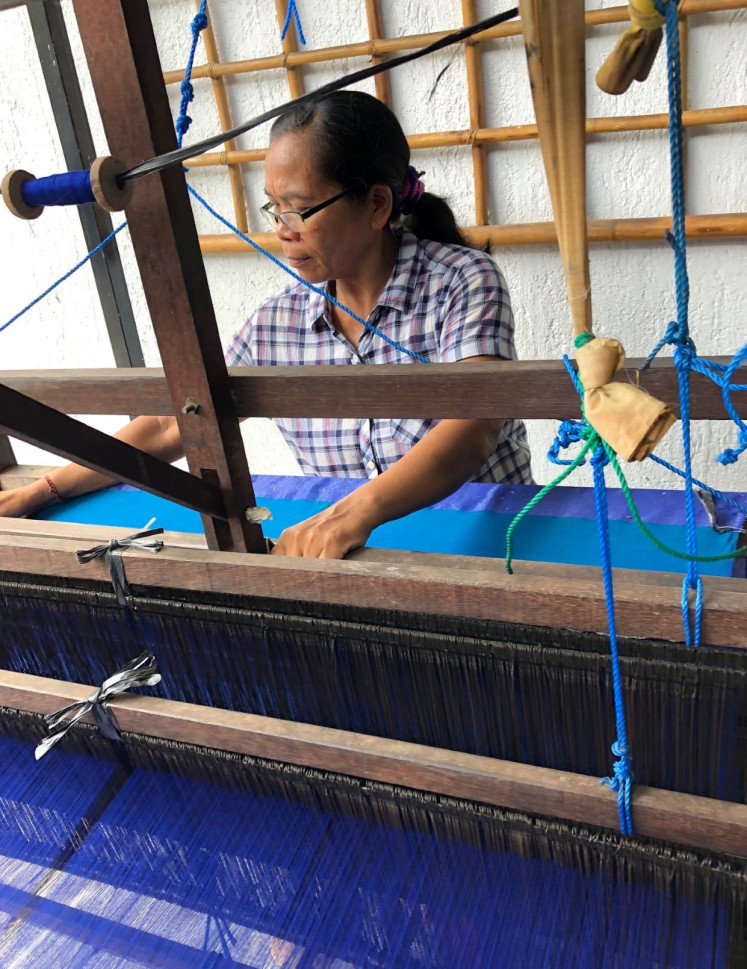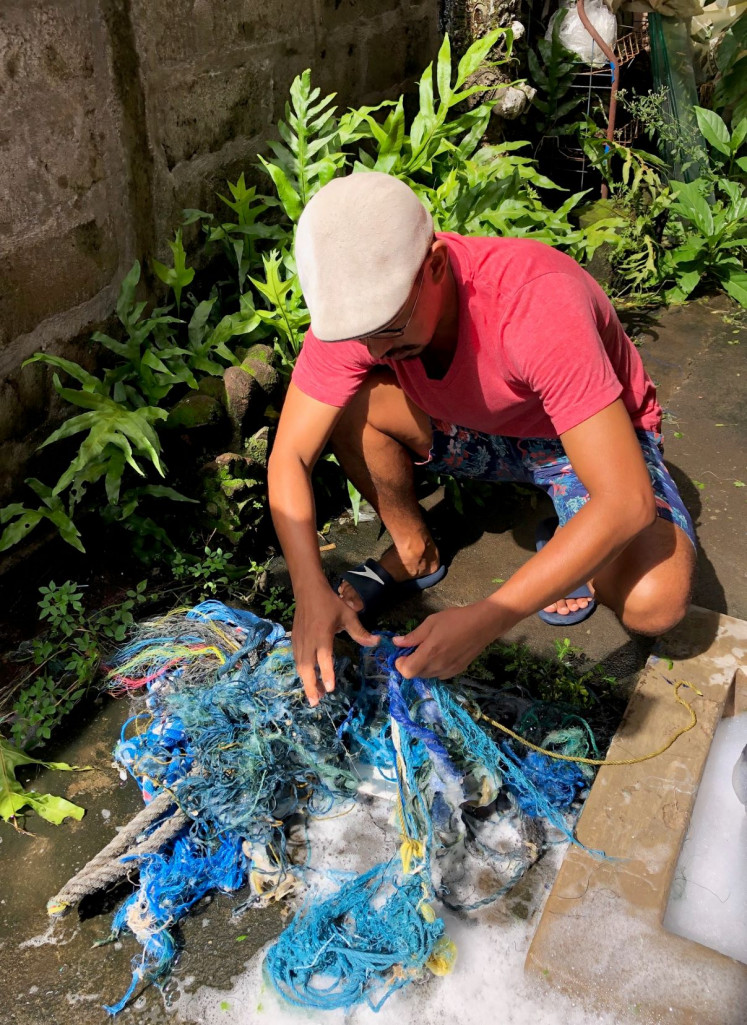Popular Reads
Top Results
Can't find what you're looking for?
View all search resultsPopular Reads
Top Results
Can't find what you're looking for?
View all search resultsLearning the ropes: Ari Bayuaji is pulling the strings, untying the knot
As an artist who finds his inspiration in everyday objects, Ari Bayuaji is preparing an exhibition based on plastic rope, string and fishnets found in the ocean.
Change text size
Gift Premium Articles
to Anyone
Artist Ari Bayuaji has been preparing for his upcoming exhibition since September 2019 in Bali.
Although not specifically indicated by the artist, he will once again use his show to question the social deficiencies of societies worldwide; in this case, widespread ocean pollution.
“I’ve been talking about this project to many people here, but I’ve avoided talking about pollution. I’m not an activist,” he ponders in his Sanur hotel room.
Indeed, pollution is a key word that he will not mention directly.
“I like ready-made objects and to elevate them into high art,” Ari says.
This is obviously his trademark, with all his artwork based on ordinary objects destined to become something new and meaningful to viewers, just like his take on discrimination through an exhibition titled “Golden” or the obsessive new habit of taking selfies in “Self-Portrait”.
Artwork: For his work, titled 'The Ocean and The Mountain', Ari Bayuaji applies different techniques, from weaving, stitching to tying plastic threads to cotton fabric. (Courtesy of Ari Bayuaji/-)His works have been on display in and outside of Indonesia, including Canada, the Netherlands, France, Germany, Denmark, the United States and Taiwan, since 2005.
However, Ari says he doesn’t need to “explain” anything. The audience should be doing the talking and commenting.
In 2015, he put on an artistic photography show in Indonesia and abroad featuring a Sanur mangrove tree covered with plastic.
“It made me very sad and this is when I decided to collect plastic rope,” he recalls.
Collaboration: Desak Nyoman Rai teaches the artist to use weaving tool for the project. (Courtesy of Ari Bayuaji/-)Found on Sanur Beach, Bali, the plastic rope, string, and fishnets were turned into works of art, thanks to Ari and several local people involved in his project, including Desak Nyoman Rai.
“She has been teaching me how to use the weaving loom, but it’s too difficult for me. We work together to choose the colors to create abstract motifs,” Ari explains.
The ropes collected by Ari are washed and the threads unraveled then stitched, woven, or sewn back together or mixed with scraps of fabric to create a myriad of flamboyant textiles.
Ari expresses the importance of his mentor at the start of this colorful project: anthropologist Urmila Mohan. She is also a curator of artifacts linked to cultures and religions with a special focus on textiles and Hinduism in India and Indonesia.
“I’ve read some of her academic writing and met her in Yogyakarta last November,” Ari says.
Urmila Mohan, he adds, really opened his mind to textiles and their history, giving him many ideas and inspiring him to work with plastic rope and strings collected from the sea.
For his project, Ari enlisted the help of the remaining workers of a small abandoned weaving workshop in Sanur.
“It is important to use local skills, like the ones of Desak Nyoman Rai. They were about to go bankrupt, but since October [2019], they have been getting work, thanks to this project,” he adds proudly.
Work in progress: It takes the artist at least five times to wash the ropes to be used in his artwork. (Courtesy of Ari Bayuaji/-)The workers’ skills were indeed put to the test as those plastic threads were very difficult to work with. Sometimes, there was not enough material to place on the loom.
“This project is also a means to empower women in Bali. This way, they learn something new and it is always important to change our ways of thinking. On my side, if I change something in my community, it’s my legacy a legacy as an artist,” says Ari, who is based in Montreal, Canada, but has a workshop in Bali as well.
The exhibition will feature other works of art, like clothes adorned with the colorful rope or even lively patchworks of striking patterns. The whole project, which has no name yet, should be completed in September. Two galleries have already expressed their interest in hosting the exhibit, one in Bali and another in Australia.
“I [learn] by trial and error. I’m very structured. When I was a child, I was a nerd,” Ari says.
He currently divides his life between Canada and Indonesia but is also very interested in other cultures, particularly Japan.
“Look at some of their products; they seem to be very simple, and indeed they are, but the process of making them is very long and complicated,” he says with admiration.
A definition that accurately sums up Ari’s latest art project. (ste)














